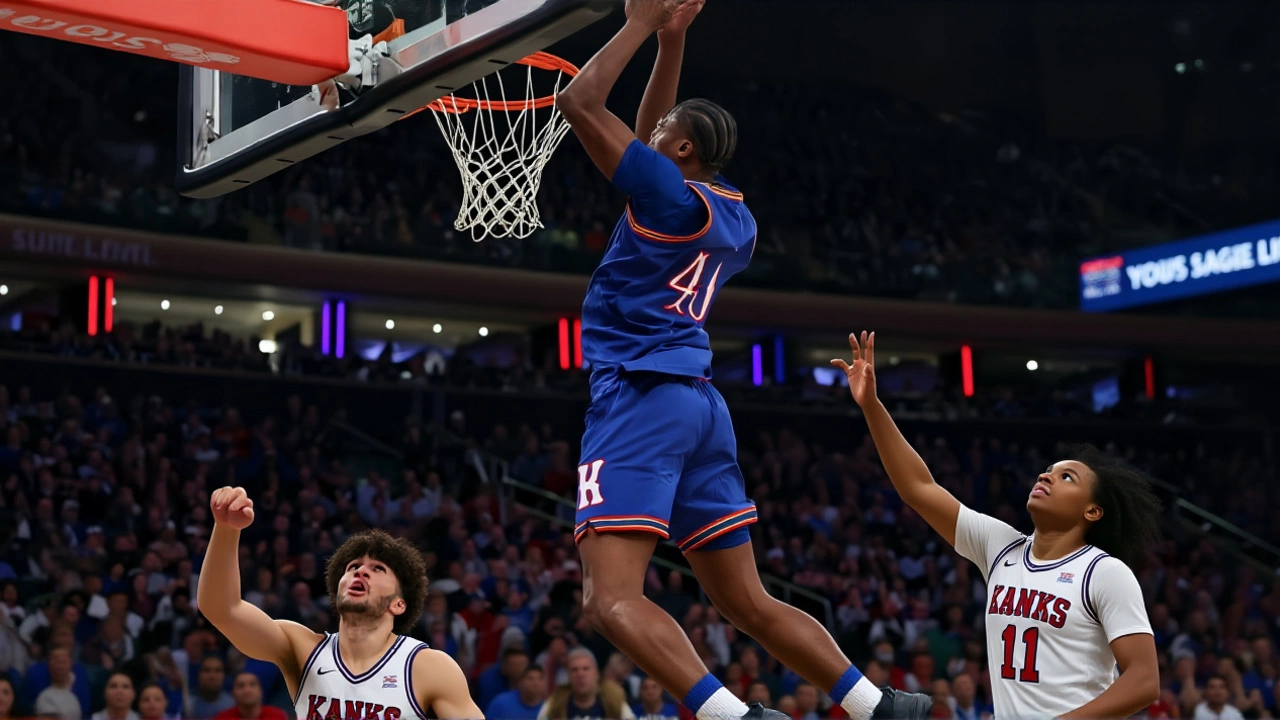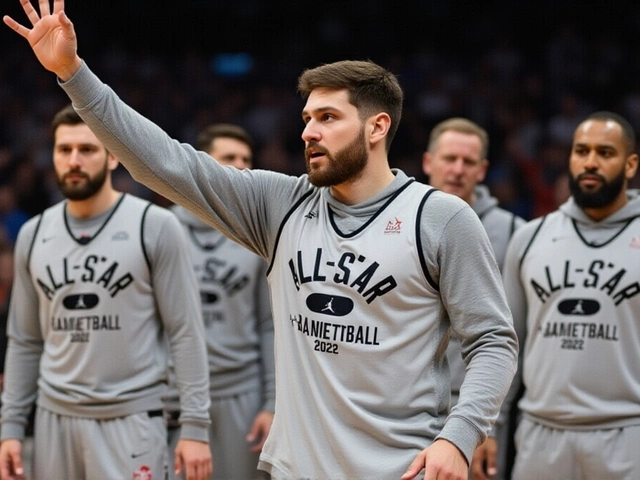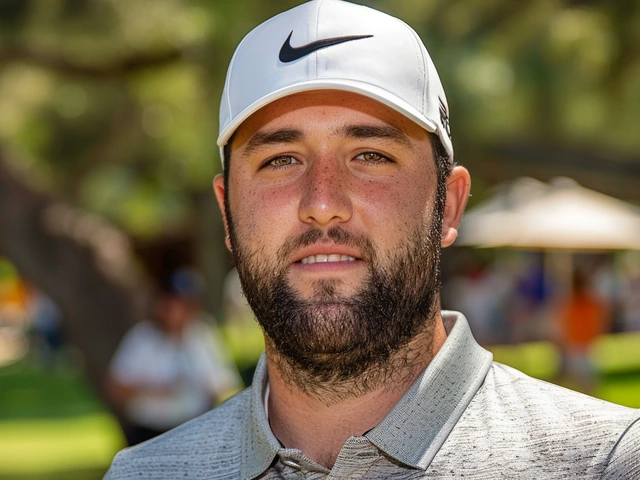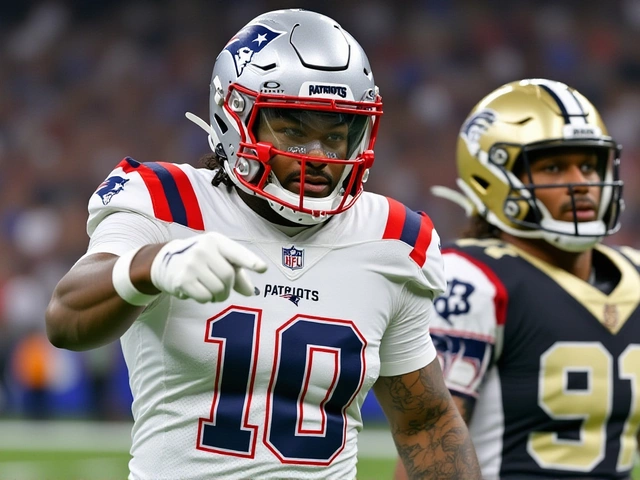When the final buzzer sounded at Madison Square Garden on Tuesday night, Duke University had done the unthinkable: they shut down a high-powered Kansas Jayhawks team in the closing minutes, turned a tight game into a statement win, and reminded the college basketball world why they’re still the team everyone’s watching. The State Farm Champions ClassicMadison Square Garden ended 78-66 in favor of the Duke Blue Devils, a performance that wasn’t just about scoring—it was about poise under pressure, defense when it mattered most, and a freshman who refused to be contained.
A Freshman Who Carried the Weight
Cameron Boozer, the 6-foot-9 freshman from Salt Lake City, didn’t light up the scoreboard with efficiency—his 7-of-17 shooting left room for improvement—but he did something rarer: he made his teammates better. His 18 points, 10 rebounds, and five assists weren’t just stats—they were the blueprint of Duke’s offensive identity. He didn’t force shots. He passed out of double teams, found cutters, and turned defensive stops into fast breaks. That’s the kind of basketball that coaches dream about. And when Kansas made their final push, it was Boozer’s presence in the paint that forced the Jayhawks into contested jumpers and rushed passes.The Defense That Changed Everything
Kansas had been scoring at will early in the season. They’d dropped 85 on Princeton. They’d put up 71 on North Carolina. But Duke’s defense? It was a different animal. For the first time this season, a team had cracked 62 points against them. But here’s the twist: no one had ever gone cold like Kansas did in the final five minutes. The Jayhawks went 0-for-8 from the field in that stretch. No threes. No drives. No second-chance points. Just silence. Duke’s 11-2 run to close the game wasn’t luck. It was execution. Caleb Foster, the sophomore guard from Houston, hit a contested three at 3:49 that felt like the dagger. It wasn’t just the shot—it was the timing. The shot clock was winding down. The crowd was screaming. And he didn’t flinch. "It’s what dreams are made of," Foster said afterward. "It’s what you come to Duke for." And in that moment, you believed him.The Missing Piece: Darryn Peterson
Kansas didn’t just lose—they lost without their sparkplug. Freshman guard Darryn Peterson, who averaged 16.3 points per game before this contest, was sidelined with a hamstring injury. His absence wasn’t just about points. It was about pace. He was their primary ball-handler in transition, their best perimeter threat. Without him, Kansas looked stagnant. Jayden Dawson and Flory Bidunga tried to carry the load, but Duke’s length and rotations turned every drive into a gamble. Bidunga, who dropped 25 on Princeton just two nights prior, managed just 12 points on 5-of-10 shooting. It wasn’t a bad night—but it wasn’t enough.A Rivalry Rekindled
Kansas had won five of the last six meetings against Duke. They’d beaten the Blue Devils in the 2023 NCAA Tournament. They’d won the last two Champions Classic matchups. But this wasn’t just another game—it was a turning point. Duke’s 43-18 all-time record at Madison Square Garden now includes a signature win over a traditional powerhouse. For Jon Scheyer, in his third year as head coach, this was the kind of win that defines a program’s identity. He’d said before the game, "It’s going to be a big-time game that we’ll be ready for." He wasn’t just talking. He was preparing.
What’s Next for Both Teams?
Duke heads home to Cameron Indoor Stadium for two non-conference games: Niagara on Friday, November 21, and Howard on Sunday, November 23. They’re 5-0. Their schedule doesn’t get easier. But this win? It’s the kind that builds confidence. It’s the kind that makes teams believe they can beat anyone. Kansas? They’re headed to three straight neutral-site ACC games—Notre Dame on November 23, then Syracuse on November 26. They’re still a talented team. But without Peterson, they’re vulnerable. Bill Self called this "a big boy game." And in the end, Duke proved they’re ready to play with the big boys.The Bigger Picture
This wasn’t just about two teams. It was about the evolution of college basketball. Duke, once defined by NBA prospects and one-and-dones, now has a team that plays with structure, patience, and defensive discipline. Kansas, still a powerhouse, is rebuilding around a new generation of talent—but they’re not quite there yet. The gap? It’s closing. But for now, Duke owns the moment.Frequently Asked Questions
How did Cameron Boozer’s performance compare to other top freshmen this season?
Cameron Boozer’s 18-point, 10-rebound, 5-assist line in a high-stakes game at Madison Square Garden ranks among the most complete performances by a freshman this season. Only a few others—like Auburn’s Jalen Williams (22 pts, 9 reb vs. Alabama) and Kentucky’s Tyrese Maxey (19 pts, 7 ast vs. Texas)—have matched his impact. But Boozer’s ability to control tempo and facilitate under pressure sets him apart, especially in a game where his shooting efficiency wasn’t elite.
Why was Kansas’s offense so stagnant in the final minutes?
With Darryn Peterson out due to injury, Kansas lost their primary ball-handler and transition catalyst. Duke’s defense, led by Caleb Foster and Boozer, forced Kansas into isolation plays late. The Jayhawks attempted six jumpers in the final five minutes without a single assist, and their only two field goals in that stretch came from putbacks. No ball movement meant no rhythm—and Duke capitalized.
How significant is Duke’s record at Madison Square Garden?
Duke’s 43-18 all-time record at Madison Square Garden (.705 winning percentage) is the best among all programs that have played at least 20 games there. They’ve won 10 of their last 12 games at the Garden, including three straight since 2021. This win over Kansas marks their 61st game in the arena and reinforces their reputation as a team that thrives in big venues under pressure.
What does this win mean for Duke’s national title chances?
This victory gives Duke a resume win over a top-25 team on a neutral court, something they lacked last season. With five wins and no losses, they’re now firmly in the top five of the AP Poll. If they can maintain defensive intensity and Boozer continues to elevate his play, they’re legitimate contenders. But ACC play begins soon, and teams like Virginia Tech and North Carolina will test their depth.
How did Duke’s coaching staff prepare for Kansas’s offensive style?
According to assistant coach Chris Collins, Duke spent over 12 hours studying Kansas’s motion offense, particularly how they used Flory Bidunga as a screen-and-roll hub. They switched to a 1-3-1 zone in the second half to disrupt passing lanes and forced Kansas into 14 turnovers. The key was limiting kick-outs to shooters—Kansas made just 2-of-12 threes, their lowest of the season.
Is this win a sign that Duke is back as a national powerhouse?
It’s a strong signal. After a down year in 2024, Duke’s return to elite form hinges on balance—not just star talent but defensive cohesion and smart decision-making. This win over Kansas, especially with the way they closed the game, shows they’ve developed that balance. It’s not just about recruiting top freshmen anymore—it’s about developing them into winners.





